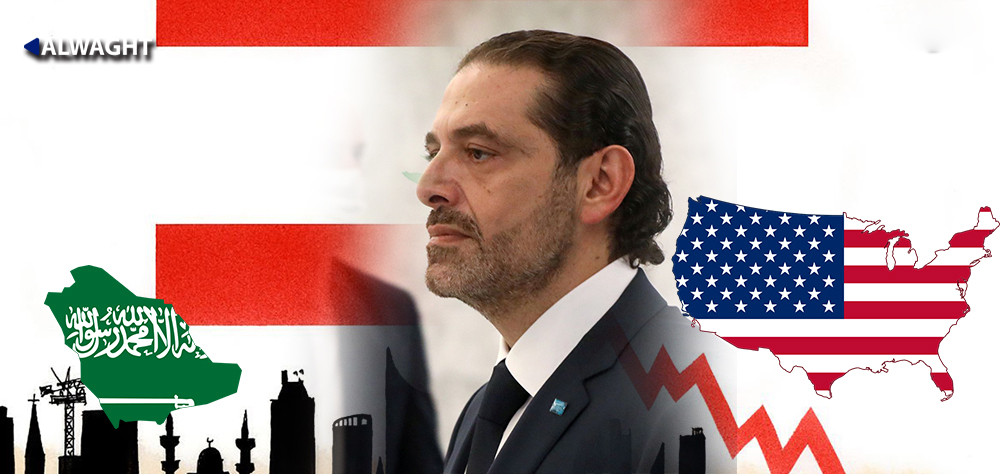Alwaght- These days, the political impasse in Lebanon is making a topic for regional and international diplomatic discussions. After the visit to Lebanon of the European Union High Representative for Foreign Affairs Josep Borrel last week and talking with senior Lebanese officials and party leaders, the Prime Minister-designate Saad Hariri traveled to the UAE and discussed the limbo with Abu Dhabi officials. Meanwhile there is unconfirmed news that Hariri plans to step down from government formation. As the new deadline for him to form the government is nearing its end, the situation is about to see an important move by Hariri which can lead to his resignation or sacking by President Michel Aoun.
Lebanon taken hostage
Hariri's threat of resignation is not unprecedented as he in 2019 used this trick to put strains on Hezbollah in order to wrest concessions in order to form the so-called technocratic and trans-party cabinet with the final aim of isolating Hezbollah in the power structure despite the fact that the latter had gained 71 seats out of 128 seats of the parliament in 2018 election.
Taking Lebanese stability hostage, Hariri and his allies and supporters believe that a lasting cabinet is not possible without him, and that Hezbollah eventually will be forced to make the necessary concessions by Hariri threatening to resign and obstruct the formation of the cabinet. This obstructionist approach to the cabinet formation has led to the failure of all domestic and foreign initiatives to step out of the political crisis, while time is rapidly running out to save Lebanon from the abyss of economic collapse.
The new government has to design a series of fundamental reforms in line with the French initiative that can take Lebanon out of its worst economic and financial crisis and prevent a terrible social catastrophe. Implementing the belated reforms to unlock billions of dollars in promised foreign is key to the country that is deprived of cash aids.
Lebanon is grappling with crippling economic problems that are serious threats to the Arab country's stability since the civil war that started from the mid-1970s and ended in the 1990s. The Lebanese national currency has been in a free fall since October 2019, losing more than 90 percent of its value and pressing more than half of Lebanon's population of six million to poverty and unemployment.
The Lebanese are also in a difficult situation due to the lack of fuel and funds to buy fuel and the dramatic increase in the price of food and other essential items, amid the caretaker government's plans to ditch subsidies for basic items such as fuel, wheat, and medical services. Lebanon's economic collapse ranks among the world's worst financial crises since the mid-19th century, the World Bank said on June 1.
Meanwhile, France and the EU have threatened with sanctions the Lebanese officials who are accused of corruption and setting up roadblocks ahead of the new cabinet formation.
The European Parliament Committee on Foreign Affairs in Luxembourg is set to hear a report of Borrel on Lebanon situation and discuss the European sanctions. Borrel denounced the Lebanese leaders for the procrastination of the government and warned that the European bloc could announce sanctions on those hampering the solution to the political crisis.
Hariri under Saudi-American pressures
Without any doubt, one of the most important reasons that Hariri rejected Aoun's initiative to distribute the cabinet posts without giving the "guaranteeing one-third" to any party is the pressures by Saudi Arabia and the US, which used the critical conditions against Hezbollah. Now if Hariri decides to step down under Riyadh and Washington pressures, he would put his political life in danger as part of this political gamble, in addition to bringing about even worse conditions for his country. At the time being, in addition to the public, a large part of the March 14 Alliance elements that earlier advocated Hariri have grown critical of his performance and behavior. Accumulated criticism against him can cause a national consensus to move past him in the road to the new government.



























